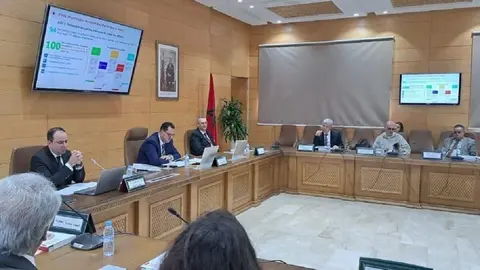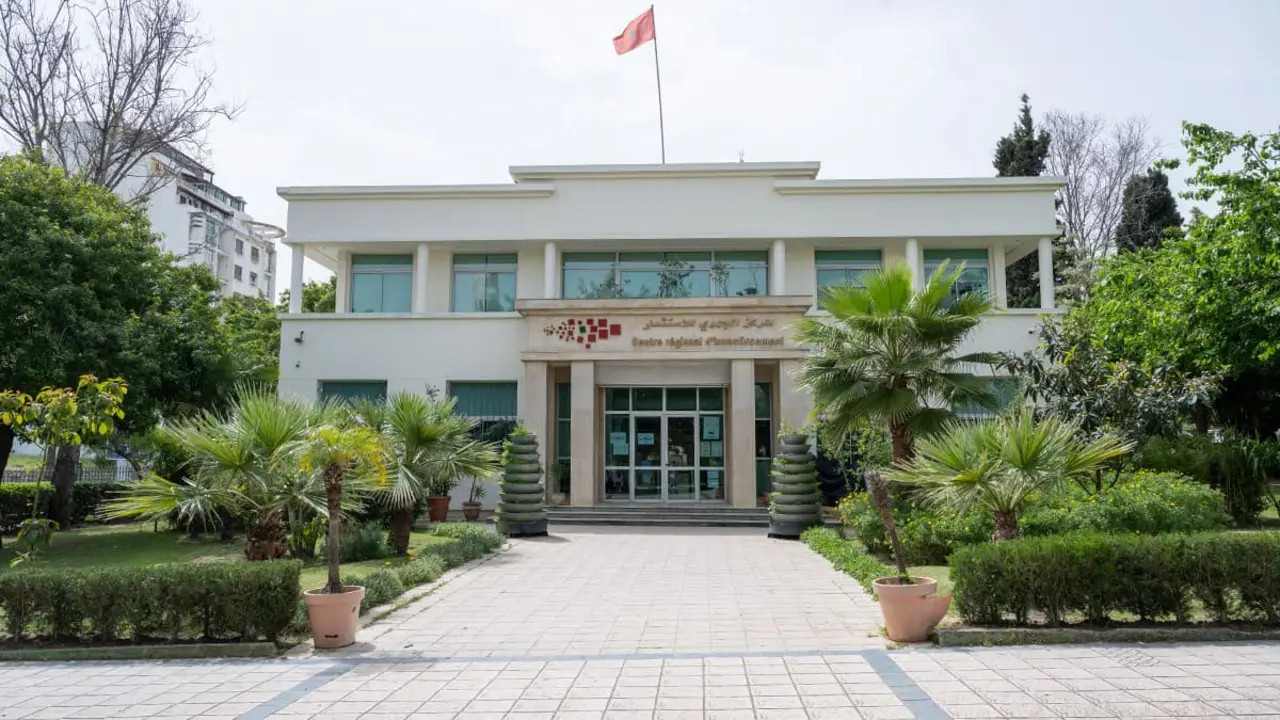Digital transformation and industrial property, two essential pillars for SMEs
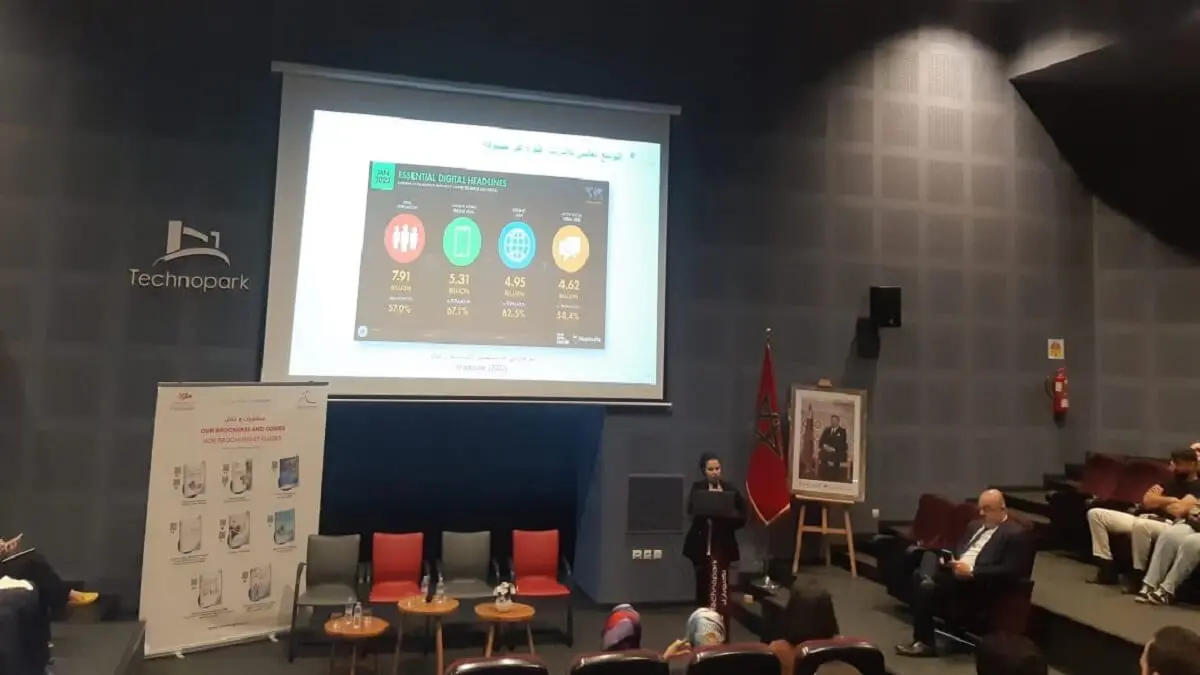
In collaboration with the Digital Development Agency (ADD) and the Moroccan Office of Industrial and Commercial Property (OMPIC), the Regional Investment Centre of the Tangier-Tetouan-Al Hoceima Region (CRI-TTA) organised a masterclass on digital transformation and industrial property as essential pillars for SMEs today.
The meeting shed light on the problems of branding and industrial and commercial property for small and medium-sized enterprises, as well as for start-ups. Added to this is the challenge of digitalisation.
It is nowadays very necessary for the company to have an IT system and a clear marketing strategy that is adapted to its activity and its size. In this sense, the Manar Al Moustatmir platform represents a model to support companies in their development path.
What is the ADD?
The ADD is a public agency affiliated to the Ministry of Digital Transition and Reform of the Administration of Morocco, whose missions are to prepare the national digital transition strategy and ensure its implementation, monitoring and updating, to propose to the government the general guidelines to be applied for the digital transition and to stimulate the dissemination of digital media and their use among citizens.
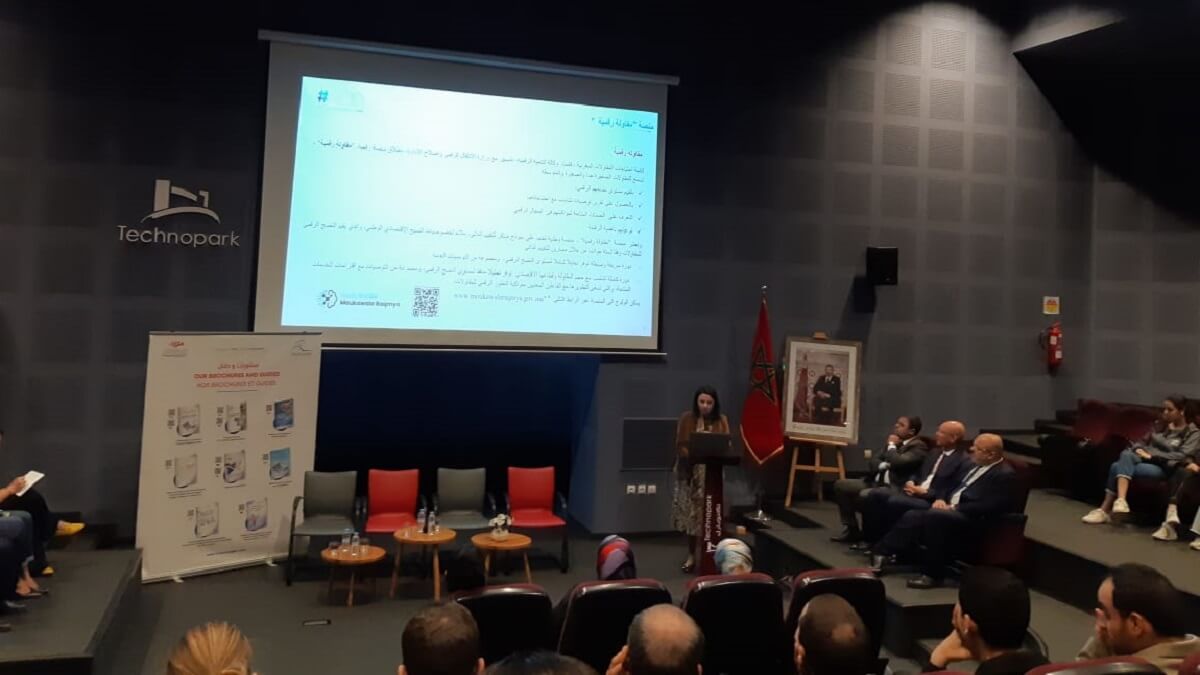
Ghita Ben Othman, chairwoman of the Digital Transformation of Economy Department at the Agency, explained that, in addition to implementing the State's digital strategy, the DDA also aims to:
- Develop digital public services.
- Encourage digital initiatives and projects in the different territories of the Kingdom.
- Support SMEs working in the digital economy, consolidating their competitiveness.
- Promote the importance of research and development for business.
- To offer training and courses that respond to the needs of actors in the digital domain in order to improve their digital position.
- Suggest a self-assessment system to measure digital maturity.
In the framework of its roadmap, the Digital Development Agency is committed to e-government, social inclusiveness and human development and the digital innovation system as three levers based on a developing digital infrastructure, a legal framework under construction and a growing digital generation.
The ADD representative stated that "SMEs are the basis of the national economy; they represent 99% of the economic fabric and generate 76.4% of the workforce in 2022, especially in the services and trade sector".
The ADD has a platform moukawalaraqmya.gov.ma for digital entrepreneurship; where digital maturity can be assessed and benefit from recommendations, online courses and support. The digital academy plays the role of developing digital skills, publishing digital content and highlighting digital professions.
What is OMPIC?
The Moroccan Office of Industrial and Commercial Property is a public institution affiliated to the Ministry of Industry and Trade. According to Rajia Saber, head of the Territory Promotion Service, OMPIC offers several types of services:
- E-services: these include industrial property protection procedures through the DirectOmpic or NCDirectentreprise platform, access to information through Directinfo, the industrial and commercial property barometer and the AMAPIC academy.
- Services in the regions: to support project holders at the local level through the delegations or the Chambers of Commerce in the twelve regions of Morocco.
- Value-added services: such as the pre-diagnosis of the industrial property status of the company PRE DIAGNOSTIC PI, and the customised brand portfolio, as well as a call centre for its clients.
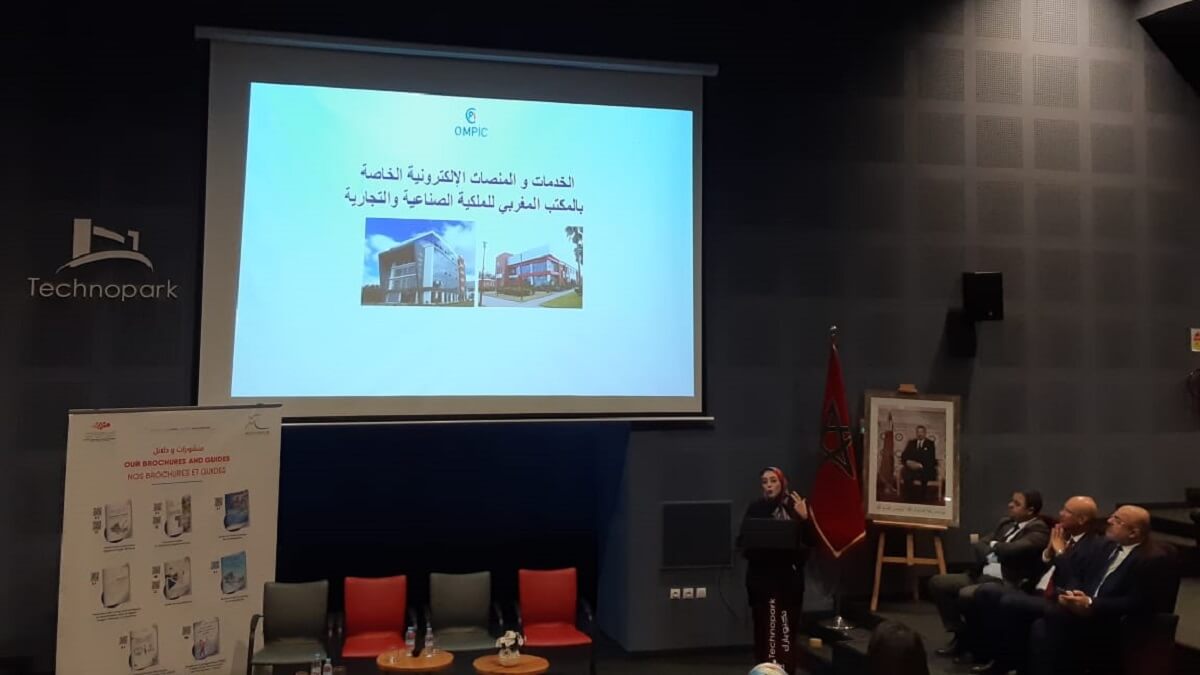
Digital transformation of SMEs, first steps towards success
Salma Khiraf, IT trainer and ADD collaborator, underlined the importance of digital transformation for SMEs in strengthening cooperation and communication, consolidating flexibility and adaptation, having new sources of income, improving customer experience and increasing productivity.
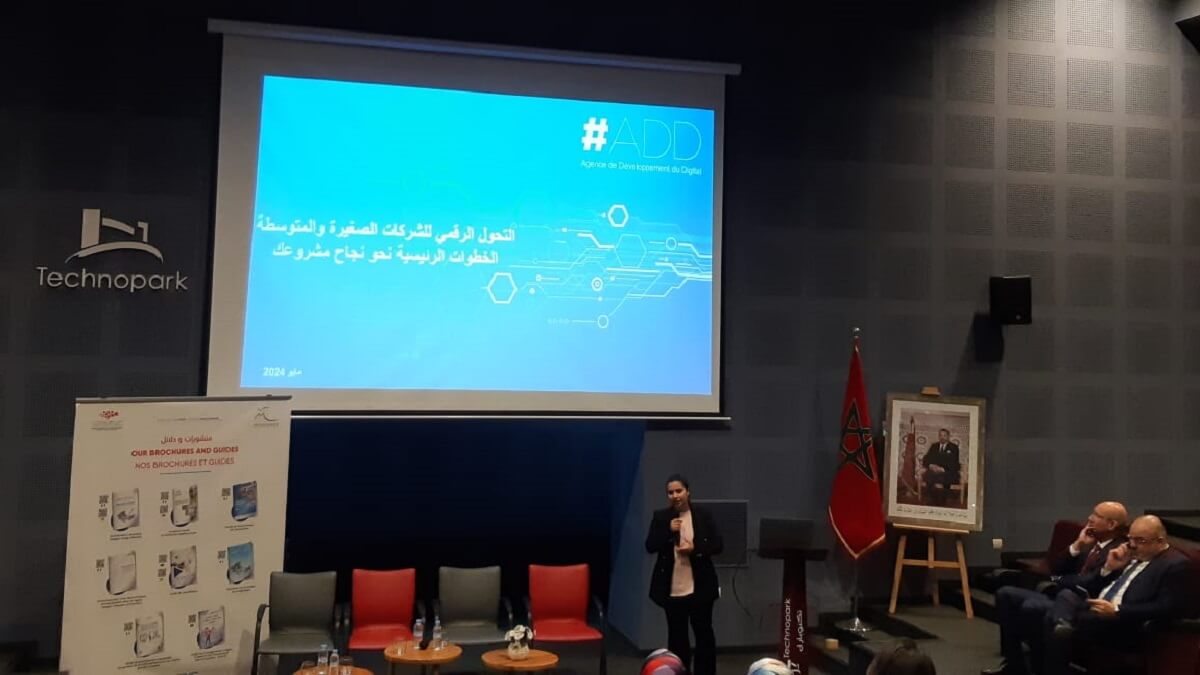
The essential steps for a better immersion in the digital world are:
- Prior diagnosis to know the level of digital maturity of the company.
- Market study and evaluation of the company's position.
- Putting in place a digital transformation strategy appropriate to the nature of the activity.
- Monitoring the digital transformation.
- Measuring performance through tools such as: DAshboard, analytics tools, CRM Systems and Performance Evaluation Tools.
- Being aware of the limits of traditional marketing.
- Opting for digital marketing to strengthen engagement and interaction, build the company's power and expertise and achieve customer satisfaction.
- Follow the digital marketing path: content, social media, influencers, search engine and email.
- Create attractive and useful content, Google ads, graphics, blogs, newsletters, webinars, contests...etc.
- Be clear and concise about the objectives of the marketing strategy.
- Determine the budget.
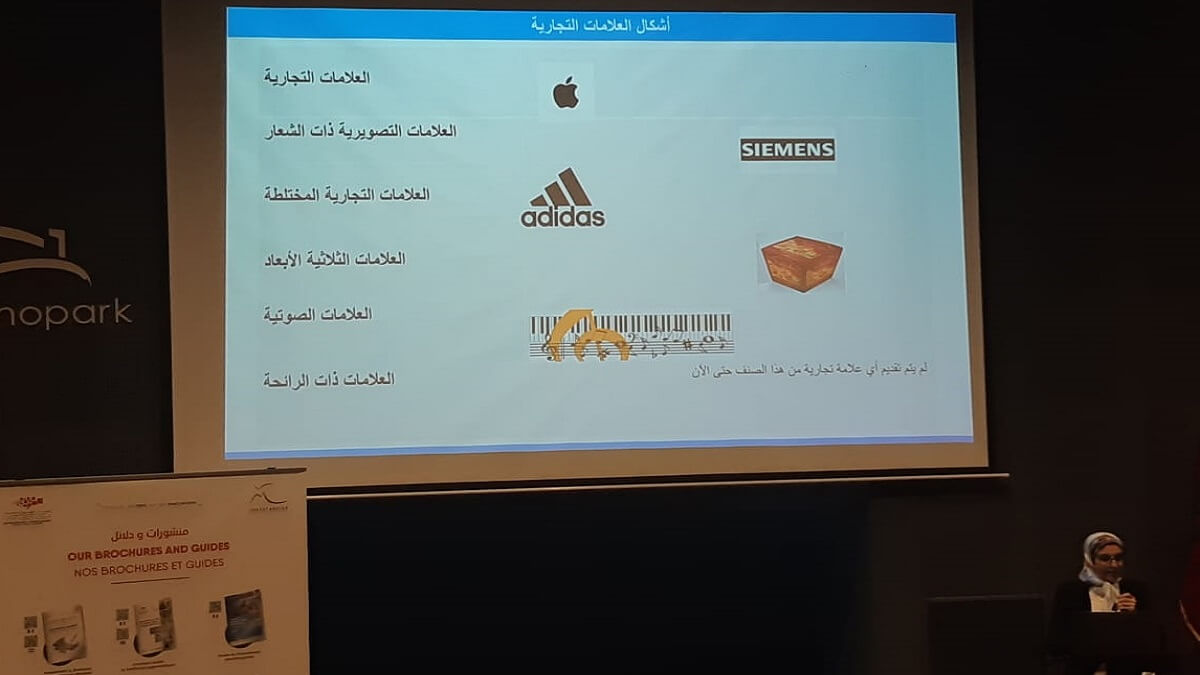
For her part, Naima Kartit, Head of Trademark Service at OMPIC, spoke about industrial property, which includes technological innovations, trademarks, creations of form and geographical data, pointing out that national trademark protection lasts for ten years, renewable for life.


